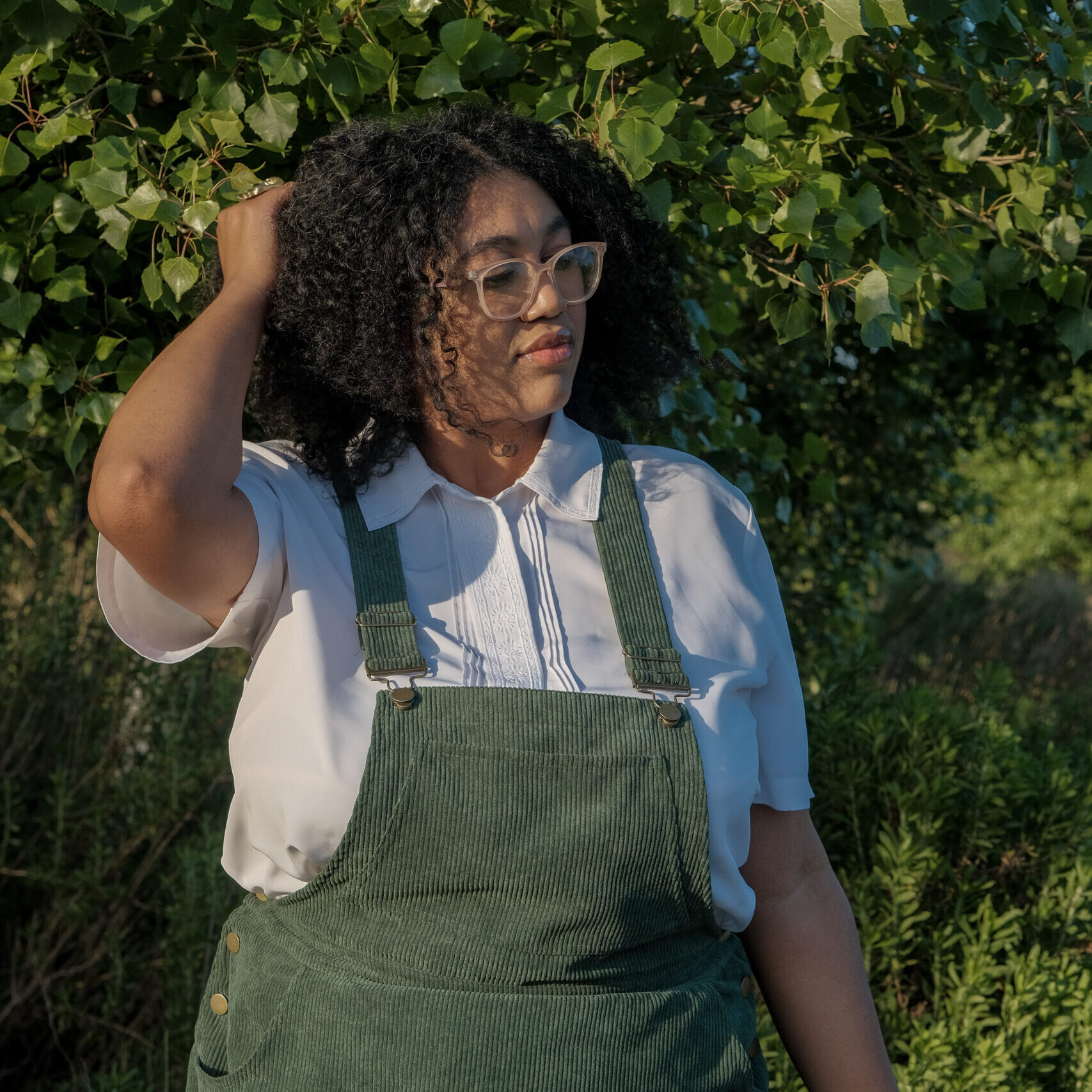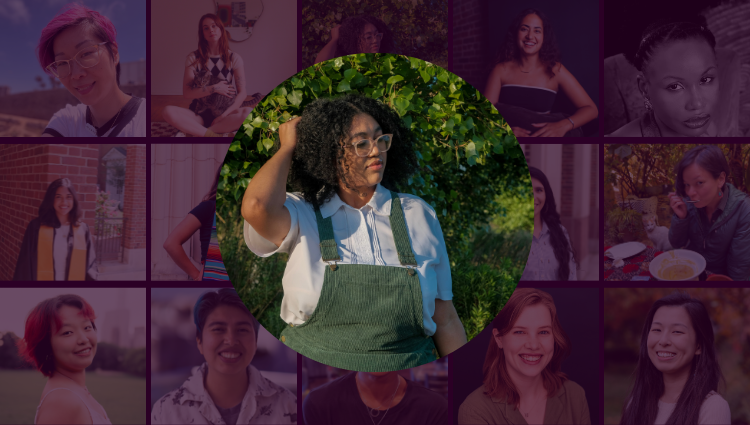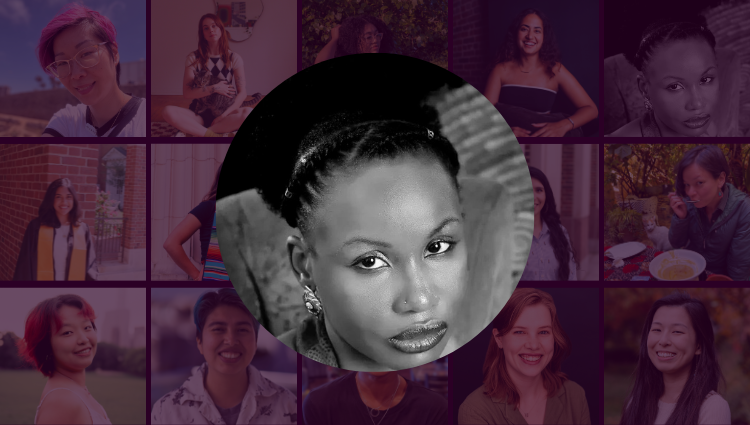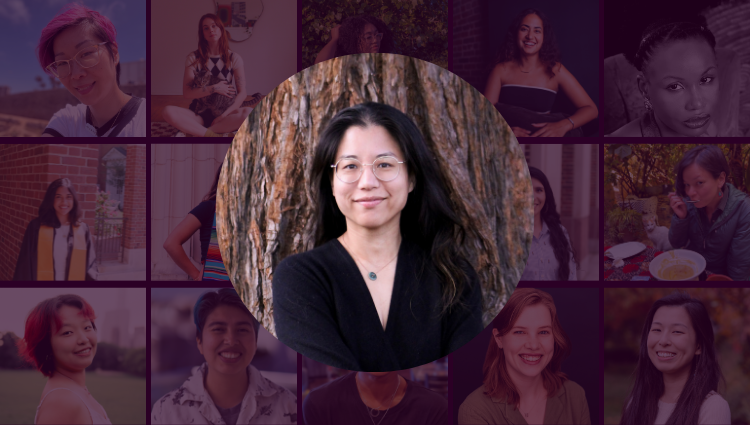Bri Stokes was one of our 2024 Digital Residents. As a part of this program, we do Q&As with our residents to feature them, their work, and their words. See our Q&A with Bri below, and explore more Spotlights here.
TSW: Tell us about your work, writing, or project. What are you writing these days? How is your work changing, and how is it changing you?
Bri Stokes: Lately, I have been writing about power—how it is stolen, how it’s manipulated, and what it means to fear its existence within you.
I think that we, as human beings—endowed with the capacities for creation and faith—are extraordinarily powerful. And we have a responsibility to use that power to connect with each other, to question those who suggest that some should lay claim to it while others should not, and to begin to distinguish the difference between power that arises from an evergreen, indefinable source inside us, and power that has been manufactured by physical means, like an elaborate magic trick.
I think we’re living through a time where the illusion of the magic trick is growing gray and stale, gradually fading into the background of a vanishing world, and it’s our collective duty to recognize, aid, and affirm this shift as often as we’re able to.
The endeavors that I find my writing requires of me are the sources of constant personal change. In order to share myself, to be able to stand before a crowd and read a vulnerable poem, to trust that I have something worthwhile to say, I have to grow, and I have to do it frequently. My work has given me the gift of self-actualization, and my hope is that it provides something similar to those who encounter it.
TSW: Who do you bring into the room with you when you write, and/or, who do you consider your work to be in conversation with? Who are you writing for?
BS: A few months ago, I stumbled upon a Maya Angelou quote that really resonated with me: “…one of the things I do when I step up on a stage, when I stand up to translate, when I go to teach my classes, when I go to direct a movie, I bring everyone who has ever been kind to me with me.” Ta-Nehisi Coates said something similar in The Message that reached the same parts of my soul: “Ancestors…live on for me, not as ghosts but through writing. A portion of their love, rage, hope, despair…is the power I try to convey in my own writing. I am not alone. I am in a tradition.”
All that to say, I am writing for and in communion with my ancestors and spiritual foremothers, both in the spirit of tradition and the hope of liberation. I am writing with the goal of furthering the work they began—listening intently to the sweetness of their call, so that I may give shape and form to the worlds and ideas they want to see made real.
TSW: What were you processing during our residency program? Did anything unlock for you? If so, what new entrance did you find for your work or for yourself as a writer in the world? And what caused that shift?
BS: The 1:1 conversation I had with Joyce was profoundly generative for me, and I find myself returning to our conversation often. I’d been struggling with the act of completing—without restarting—a first draft of a novel. Writing a first draft asks us to totally surrender our ego and expectations, to give ourselves permission to write badly, or disjointedly, or to communicate ideas that are going to, initially, seem confusing or disconnected. It’s a very vulnerable process, and I was running into a lot of blockages in facing it.
Joyce told me something I will never forget: “Writing is associative.” Writing isn’t just the act of putting words down on a page. It’s also the moment of watching a passerby cross the street and feeling a surge of intrigue or inspiration. It’s engaging with other hobbies, other practices—it’s painting, or making music, or knitting a sweater.
Whenever those blockages begin to rear their heads again, I remind myself of this. I’ll step away from the characters as they exist on the page and make music about them. I’ll sit down to paint a landscape of where they live. I’ll try to engage more with the physical world around me. It always helps.
TSW: What’s a mantra or motto that you have in mind these days when you are writing or creating? Is there a writing routine or ritual that keeps you beginning?
BS: I’m all about simplifying the process! Each time I sit down to write, I set a timer for five minutes. No more, no less. I write until the timer chimes, and if I still have more to give afterwards, I’ll keep going. But I don’t ever pressure myself to hit some massive, unrealistic word count every day. I find that when I give myself grace, when I prioritize consistency, and when I tune into and honor the natural rhythms of my creativity, I can return to the page with enthusiasm. In divorcing myself from the desire to be perfect, I am truly, solidly in practice.
TSW: What is something that someone said — a fellow resident, a past mentor, perhaps something from one of the bonus sessions — that helped change the way you see your writing or work?
BS: I tend to gravitate towards advice that helps me better conceptualize or navigate the artist’s experience as a whole. We, as creatives, are essentially living out a hero’s journey that requires diligence, focus, courage and spiritual growth, and it can all get a little inebriating at times. I find it helpful to have an anchor to hold onto when the surrounding tides of my life as an artist become fitful or uncertain.
James Baldwin has been a spiritual guide to me in that way. I often go back to this quote from his 1962 speech, “The Artist’s Struggle for Integrity”:
“This force which you didn’t ask for, and this destiny which you must accept, is also your responsibility. And if you survive it, if you don’t cheat, if you don’t lie, it is not only, you know, your glory, your achievement, it is almost our only hope—because only an artist can tell, and only artists have told since we have heard of man, what it is like for anyone who gets to this planet to survive it.”




